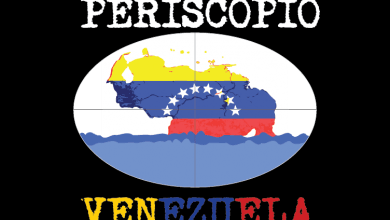Why regime change in Venezuela won’t become America’s next quagmire
Maduro regime will collapse once rank and file refuse to fight
Is Washington’s great game in the Caribbean about regime change in Venezuela? The deployment of the USS Gerald R. Ford carrier strike group has fueled speculation about the Trump administration’s true intentions.
The ensuing debate has been heavy on shaky analogies and short on historical reasoning — the kind Richard Neustadt and Ernest May outlined in their 1986 classic, “Thinking in Time: The Uses of History for Decision Makers.”
If the Harvard historians were in the Situation Room, their first question would not be “How do we oust Venezuelan strongman Nicolas Maduro?” but “What is the story of how entrenched regimes actually fall? Would Mr. Maduro and his lieutenants yield like Bashar Assad or cling to power like Saddam Hussein?”
These questions cut to the core of what likely drives Washington’s caution: the fear that any regime change operation could devolve into a quagmire — another Iraq or Libya — with civil war and criminal groups profiting from the wreckage.
Yet these fears collapse under scrutiny.
The regime in Caracas is less a government than a protection racket: a potpourri of criminal patronage networks, foreign intelligence advisers and illicit-finance pipelines. As such, it lacks the popular support and social legitimacy to sustain an insurgency.
The country’s military, though parading a diverse mix of air defenses, is hollowed by corruption and neglect. The regime’s power structure can be better understood as a Mexican standoff — that is, an uneasy equilibrium of distrust and criminal dependence where no faction moves because each fears the other’s retaliation. This dynamic sustains an illusion of cohesion even as the regime corrodes from within. A material threat to its safety and riches will trigger flight, not fight.
When Washington decides to ratchet up the pressure, the response of Venezuela’s top brass will hinge on its geopolitical Weltanschauung. This cadre came of age during Operation Urgent Fury in Grenada, Operation Just Cause in Panama and Operation Uphold Democracy in Haiti. These episodes taught this generation that when the U.S. moves in the Caribbean, it moves decisively.
Critics of regime change dismiss these precedents. Venezuela is neither Grenada nor Panama, they say. It is larger, more urbanized and entangled in transnational criminal networks. Haiti was a police operation thanks to President Carter’s eleventh-hour intervention. In their telling, any move against Caracas would look less like Panama and more like Libya.
That objection mistakes contingency for destiny. The question isn’t whether differences exist. The test is, what fresh set of facts, if any, could disabuse proponents of the “forever war” scenario? Would the absence of deep religious or ethnic fault lines change their assessment? What about the absolute inability of Moscow, Beijing and Tehran to meaningfully support the regime? Or the credibility and popular support of Maria Corina Machado and Edmundo Gonzalez Urrutia? If not, the objections aren’t foresight but rather an evidence-free veto.
Indeed, gangs and paramilitary groups control pockets of territory, but they operate far from the country’s power centers and lack the logistics to mount a coordinated resistance. They are criminal enterprises embedded in state structures, not defenders of a political cause.
Naturally, there will be post-transition security challenges. The risk of criminal anarchy metastasizing is real. Still, that is a categorically different problem from civil war, one that a post-Maduro government could manage through deliberate state power and international cooperation. When critics conflate these scenarios, they obfuscate rather than illuminate.
Should Washington issue a private ultimatum, backed by force and credible diplomatic off-ramps, Mr. Maduro will face two choices: exile or prison, if not worse. The script isn’t new. In 1989, nearly a year before the invasion of Panama, Venezuelan President Carlos Perez lobbied Panamanian strongman Manuel Noriega — then under U.S. indictment, as Mr. Maduro is today — to step down. Noriega’s defiance sealed his fate. Mr. Maduro knows how that story ends.
Thus, the question Messrs. Neustadt and May would ask is not whether regime change carries risks but whether the Iraq or Libya analogies that critics invoke hold. In this case, they don’t. More aptly, like the Assad regime and the Ghani government in Kabul, the Maduro regime will collapse once the rank and file refuse to fight.
Careful sequencing, intelligence-led targeting and the memory of Panama will produce collapse, not chaos.
• Martin Rodriguez y Rodriguez is a Washington-based adviser specializing in commercial diplomacy and geopolitical risk analysis in Latin America. A Harvard Kennedy School graduate with more than a decade of experience, he advises governments and leading companies navigating the region’s most complex markets. All opinions expressed are solely his own.

